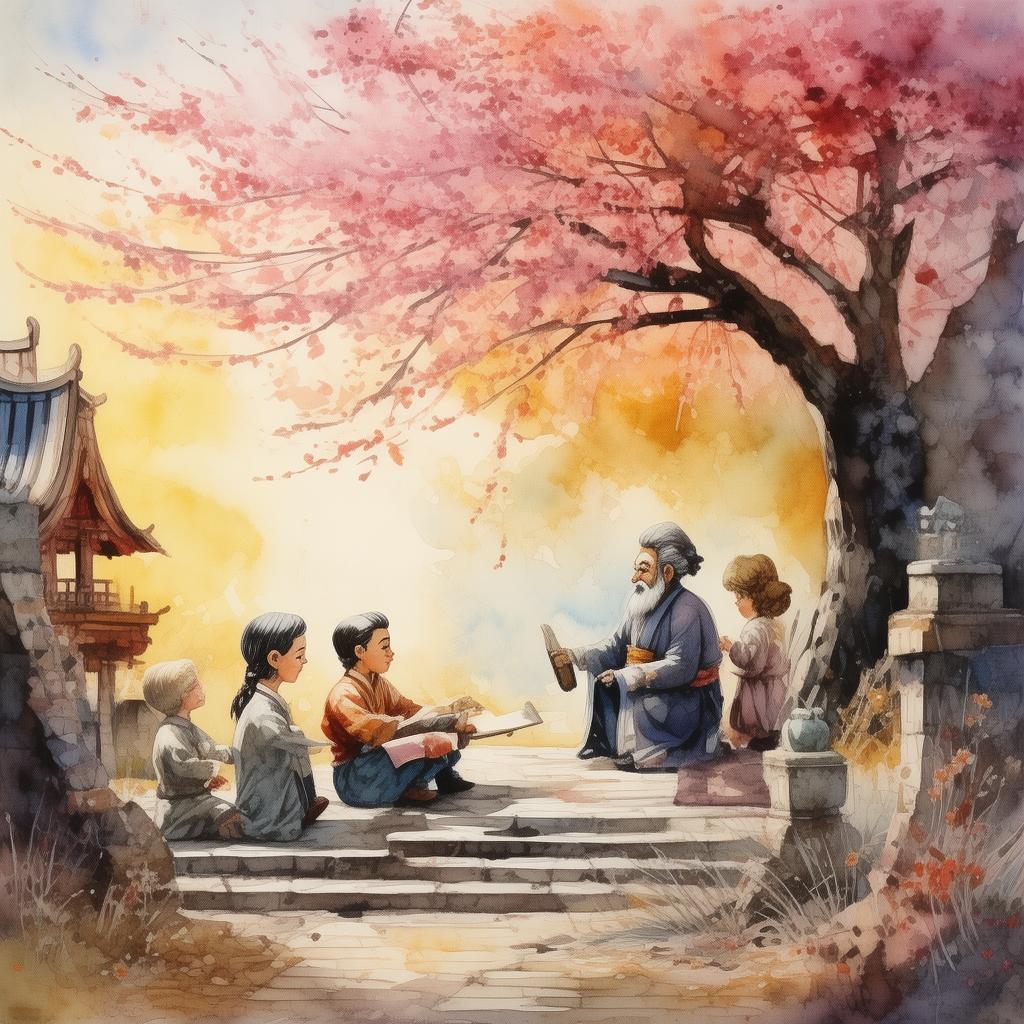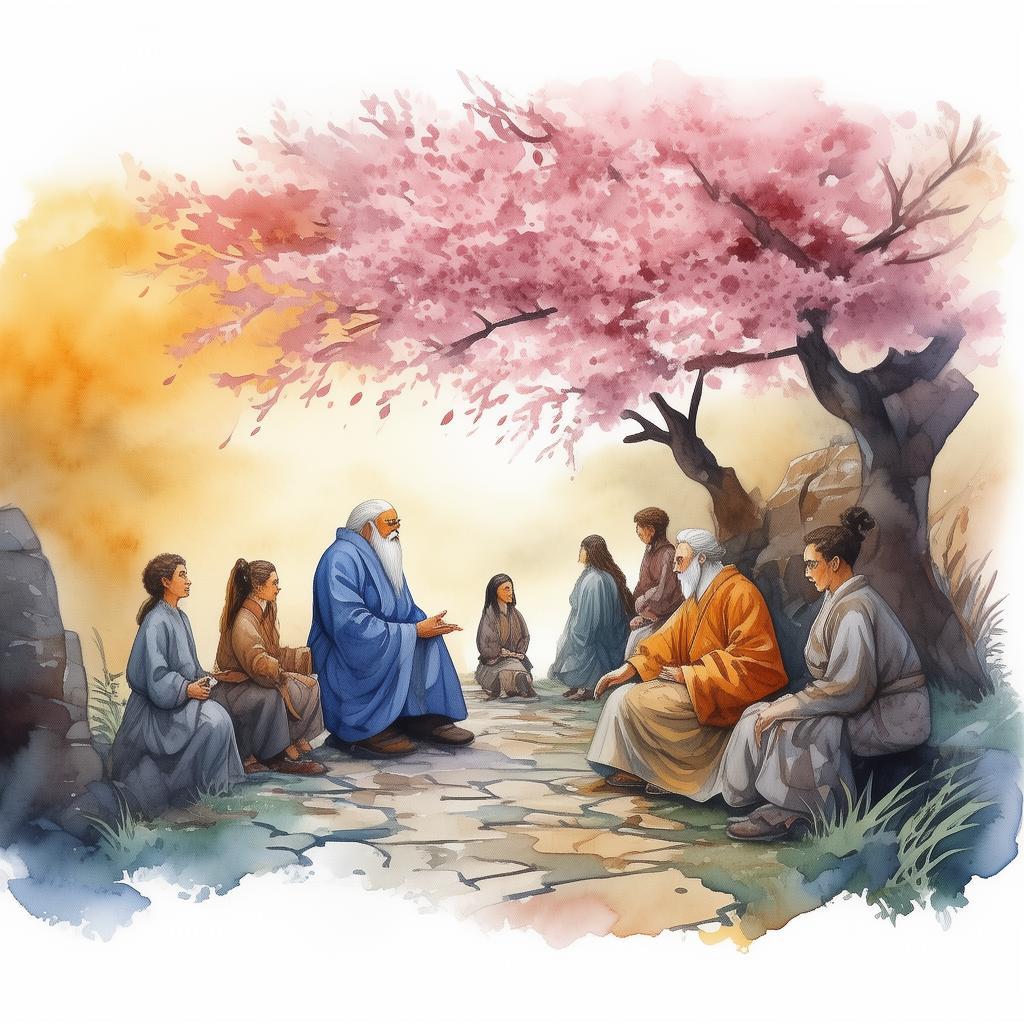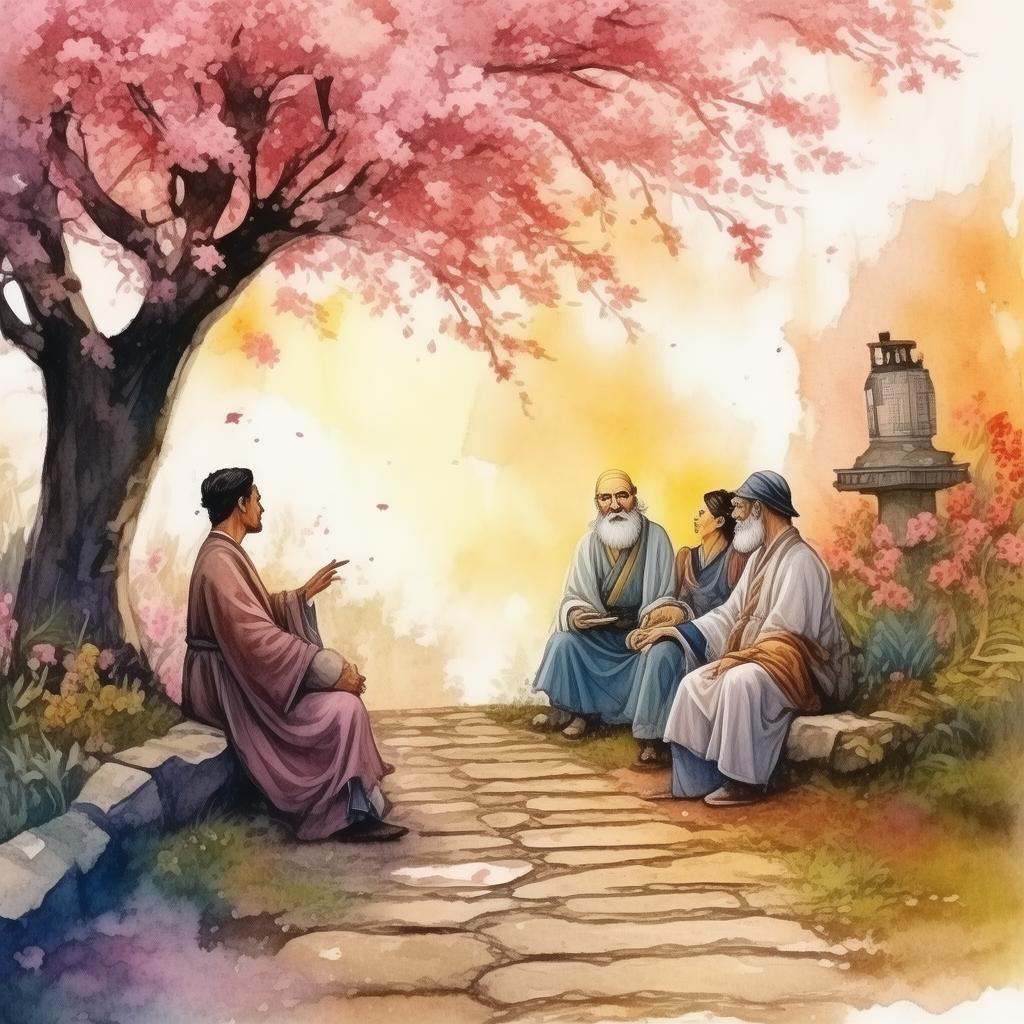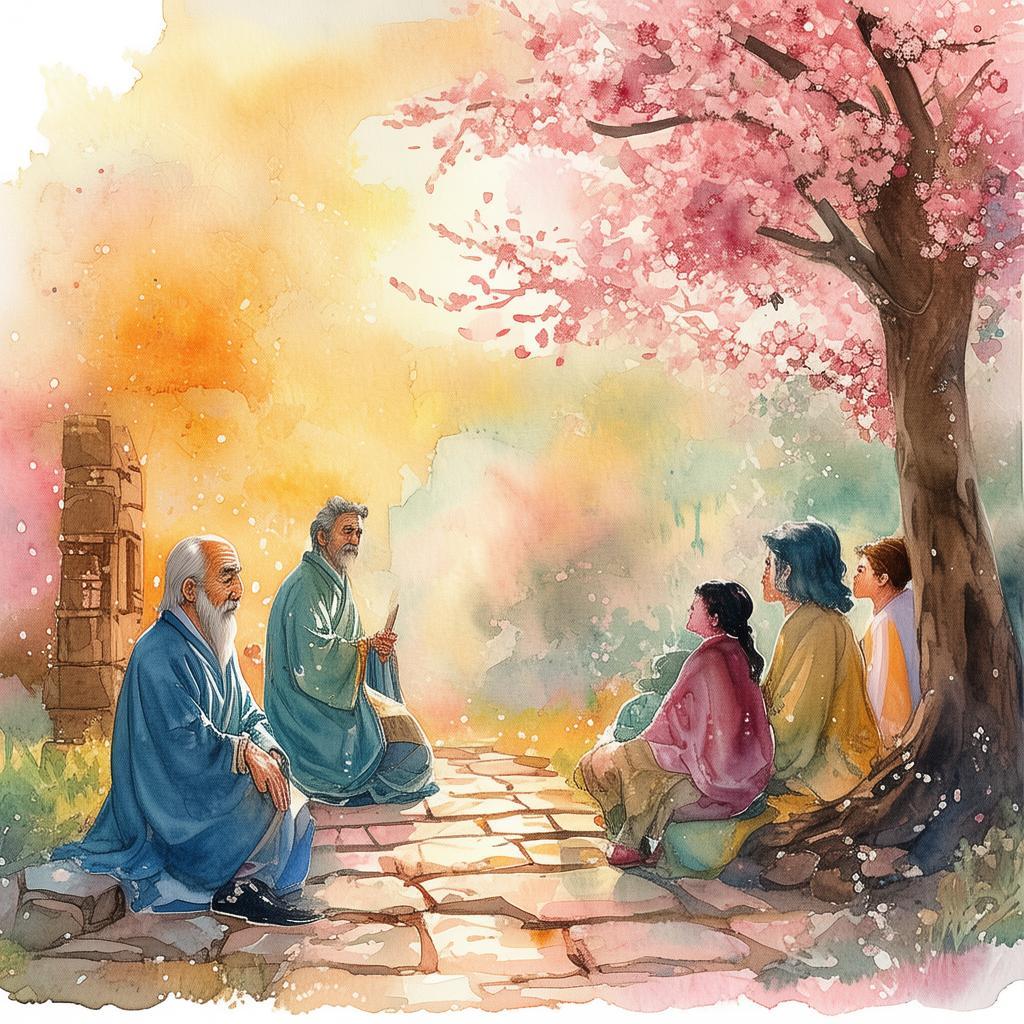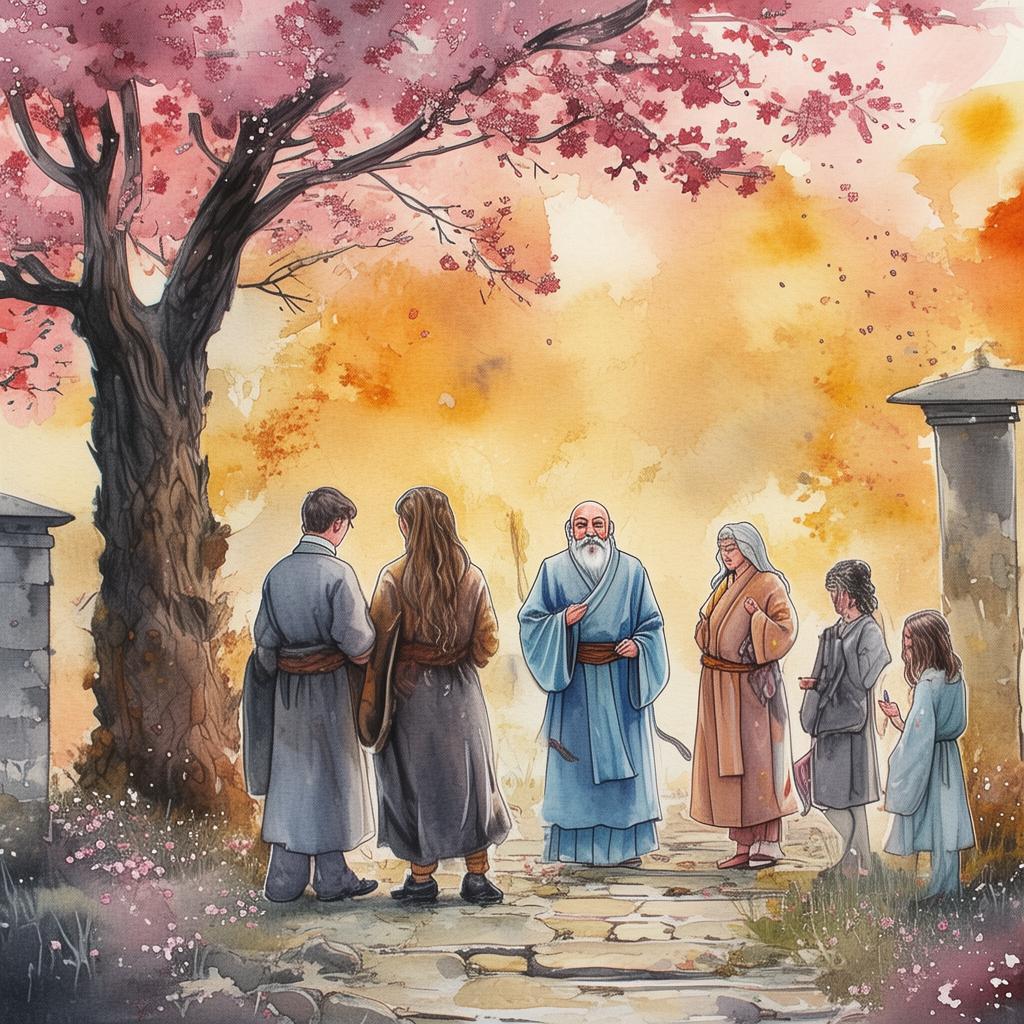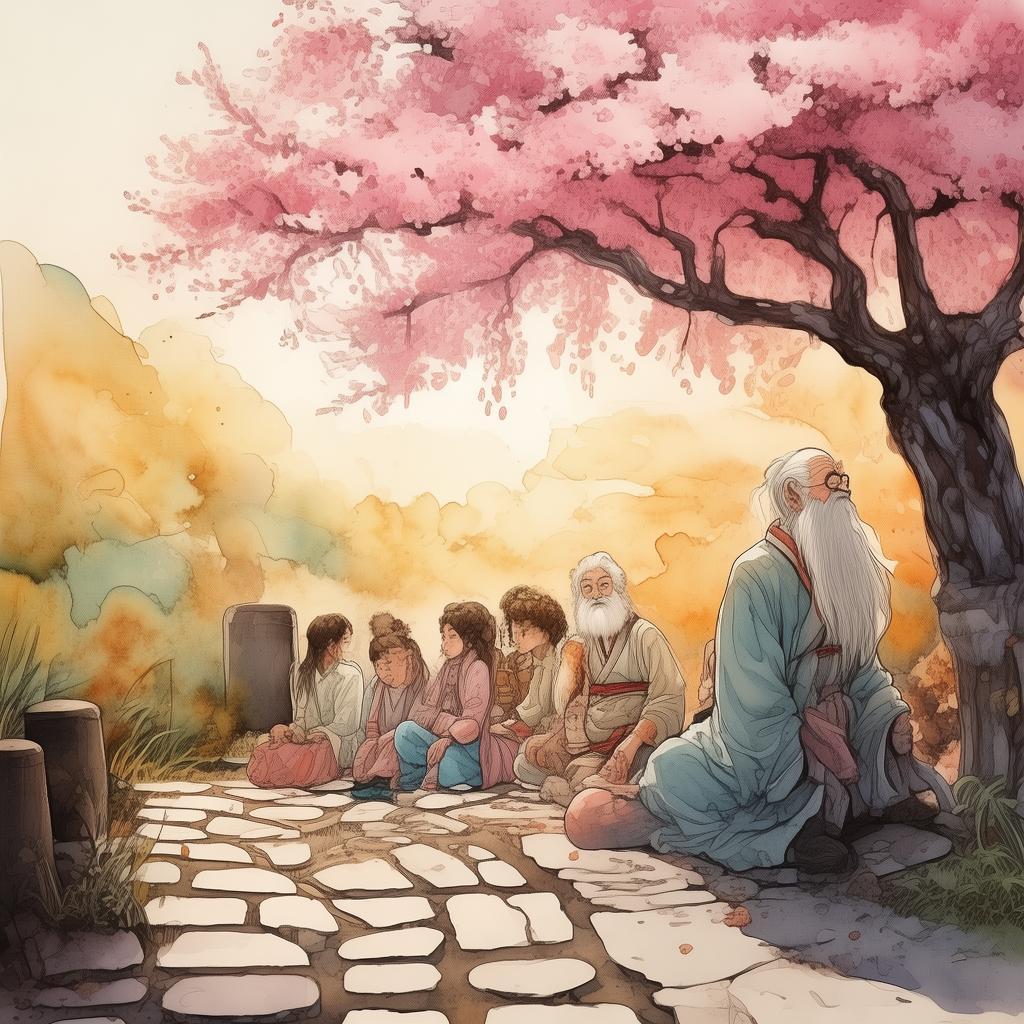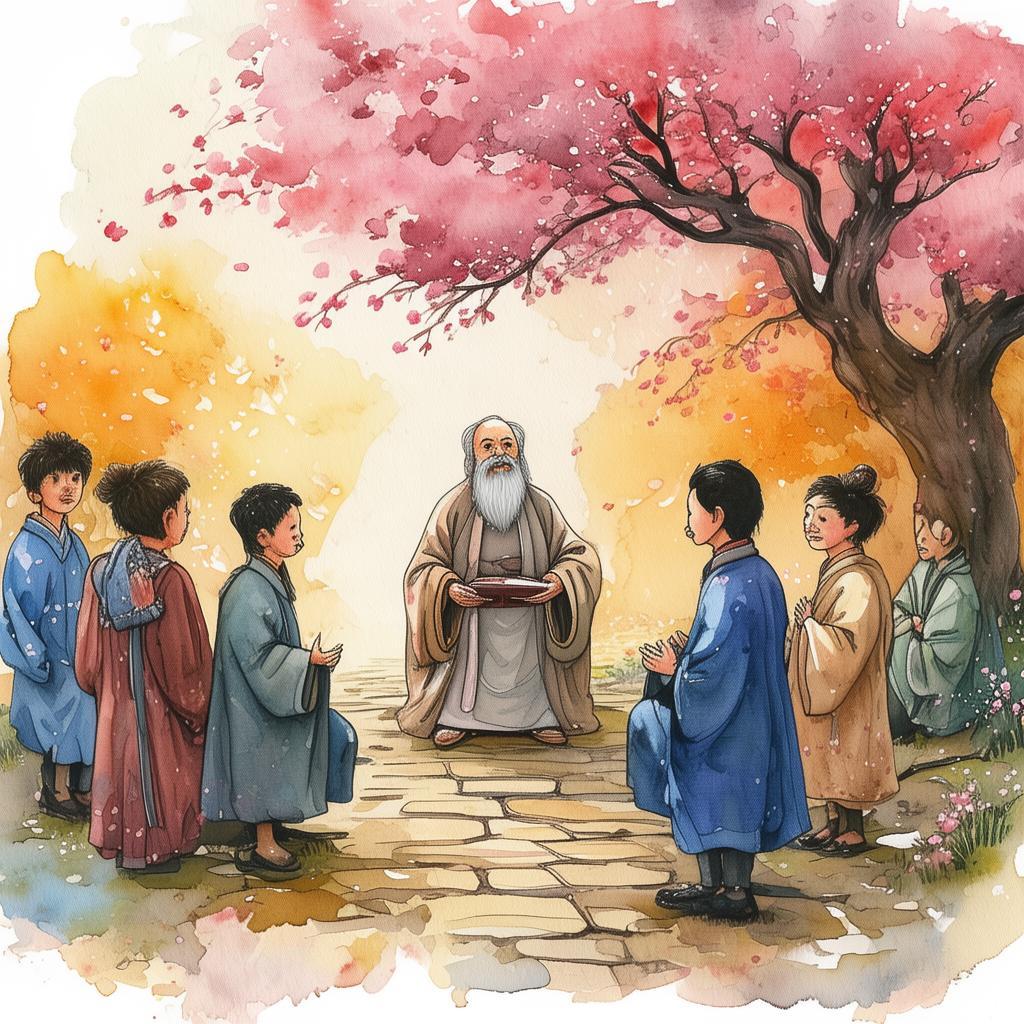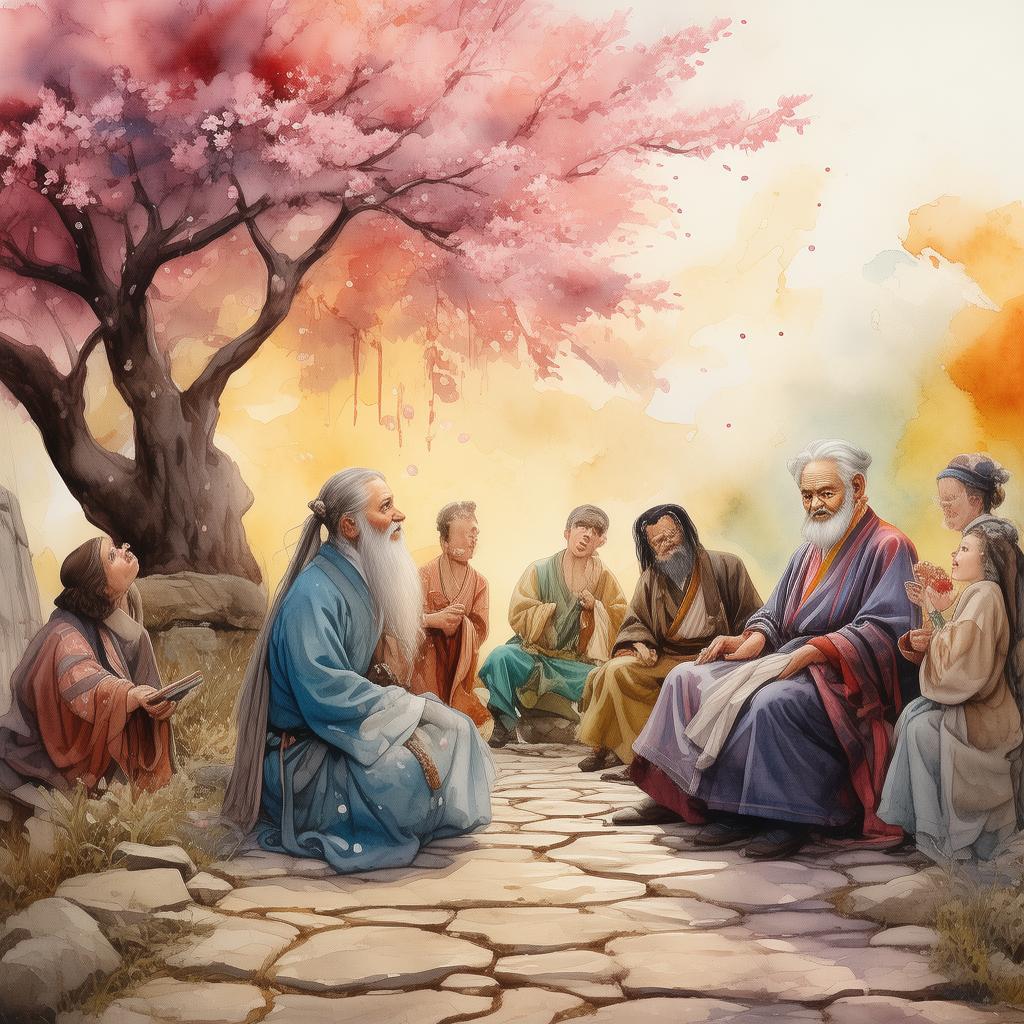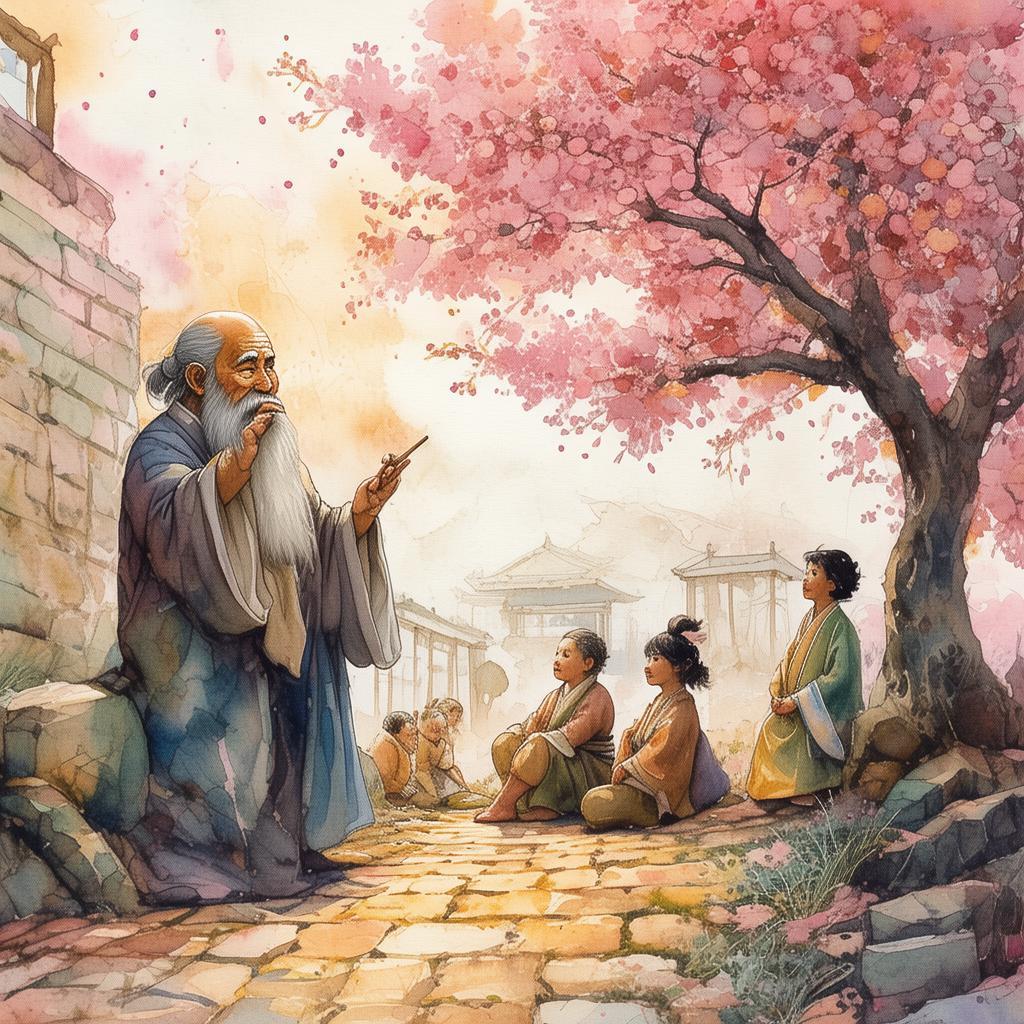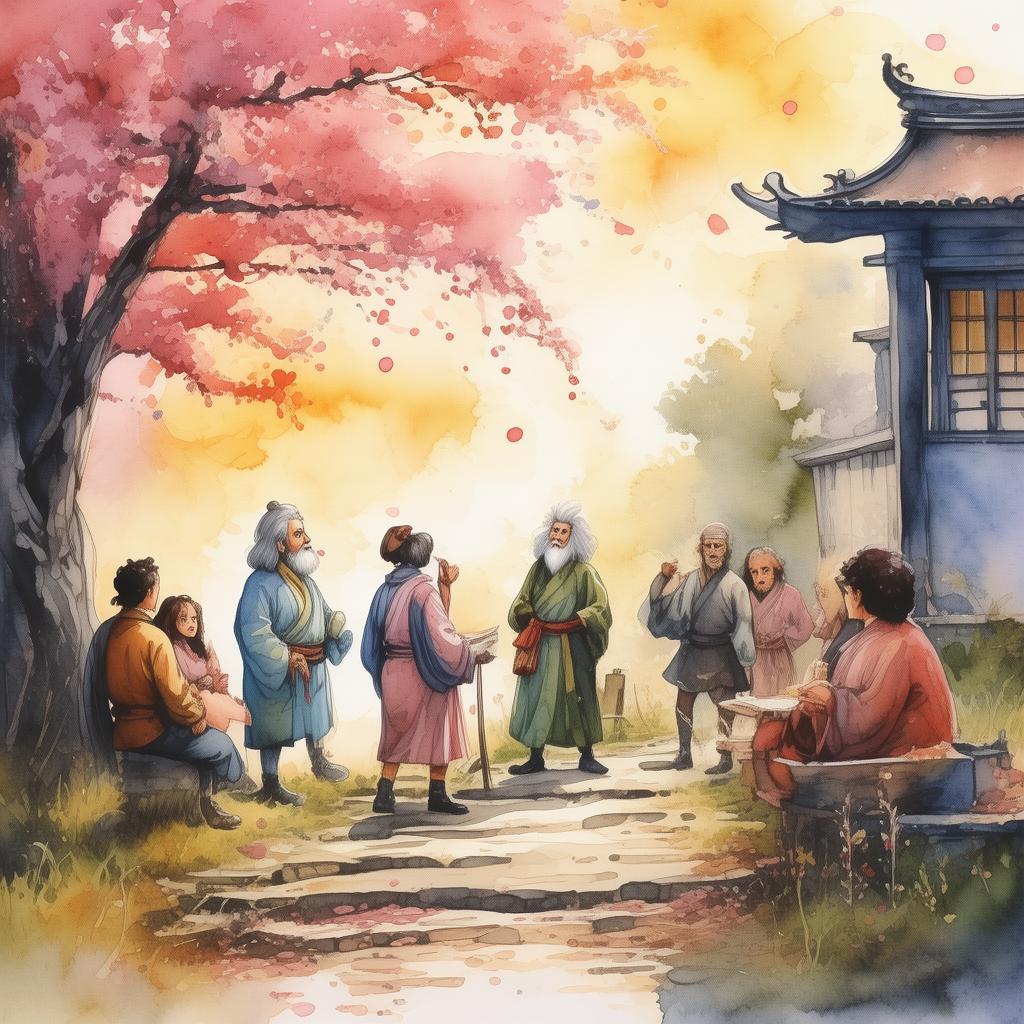Whispers of the Silk: Qin's Diplomatic Dilemma
In the heart of the ancient Qin Dynasty, a time when the first emperor of China, Qin Shi Huang, was consolidating power, there was a whisper that spread like wildfire through the courts. It spoke of a diplomatic dilemma, a hidden agenda that could alter the course of history. The Silk Road, a network of trade routes connecting the East and West, was not merely a path for merchants but a stage for political intrigue and strategic maneuvering.
The story begins in the imperial palace, where the emperor's advisors gathered. Among them was Minister Wei, a man of keen intellect and a keen sense of the emperor's whims. He knew that the emperor's interest in the Silk Road was not merely economic but political. "Your Majesty," Minister Wei began, his voice low, "the Silk Road is more than a trade route. It is a conduit for our influence, a tool for our power."
The emperor, known for his ruthless pursuit of power, listened intently. "Speak your mind, Wei," he commanded. "What is your hidden agenda?"
Minister Wei took a deep breath. "Your Majesty, the Western kingdoms are ripe for influence. Through the Silk Road, we can spread our culture, our language, and our laws. But to do so, we must first understand their strengths and weaknesses."
The emperor's eyes gleamed with a dangerous light. "And how do you propose to do that, Wei?"
"Through diplomacy, Your Majesty. We must send our best envoys, men who can navigate the treacherous waters of foreign courts and secure alliances that will bolster our empire."
The emperor nodded, a silent agreement passing between them. He knew that Minister Wei was right. The Silk Road was not just a trade route; it was a battlefield for influence. And in this battle, every move counted.
Thus, the emperor dispatched his most trusted envoy, a man named Zhang, to the Western kingdoms. Zhang was a master of disguise, a speaker of many tongues, and a man of few friends. He was the perfect man for the job.
Zhang set off on his journey, traveling through deserts and mountains, through cities and kingdoms. He met with kings and queens, with merchants and monks, with spies and assassins. Each encounter was a dance, a dance between words and wits, between power and influence.
In one of the Western kingdoms, Zhang encountered a princess, a woman of great beauty and even greater intelligence. The princess, intrigued by Zhang's stories and his charm, began to trust him. She shared with him the secrets of her kingdom, the weaknesses of her allies, and the strengths of her enemies.
But Zhang was not in the business of sharing secrets. He was in the business of gathering them. He used the princess's trust to his advantage, securing alliances that would one day serve the empire well.
Yet, as Zhang delved deeper into the diplomatic web, he began to realize that the emperor's hidden agenda was more complex than he had first thought. The emperor's desire for power was not limited to the Silk Road. It was a desire for total control, a desire that could lead to war and destruction.
Zhang found himself in a dilemma. He could continue to serve the emperor and fulfill his mission, or he could use his knowledge to prevent a disaster. He chose the latter, risking his life and his reputation to warn the princess and her kingdom of the impending danger.
The princess, grateful for Zhang's bravery, helped him escape. Together, they set off to warn the other kingdoms of the emperor's true intentions. Their journey was fraught with danger, as they were pursued by agents of the empire determined to silence them.
In the end, Zhang and the princess succeeded in their mission. The kingdoms were warned, and an alliance was formed to counter the emperor's ambitions. The Silk Road became a bulwark against tyranny, a symbol of peace and cooperation.
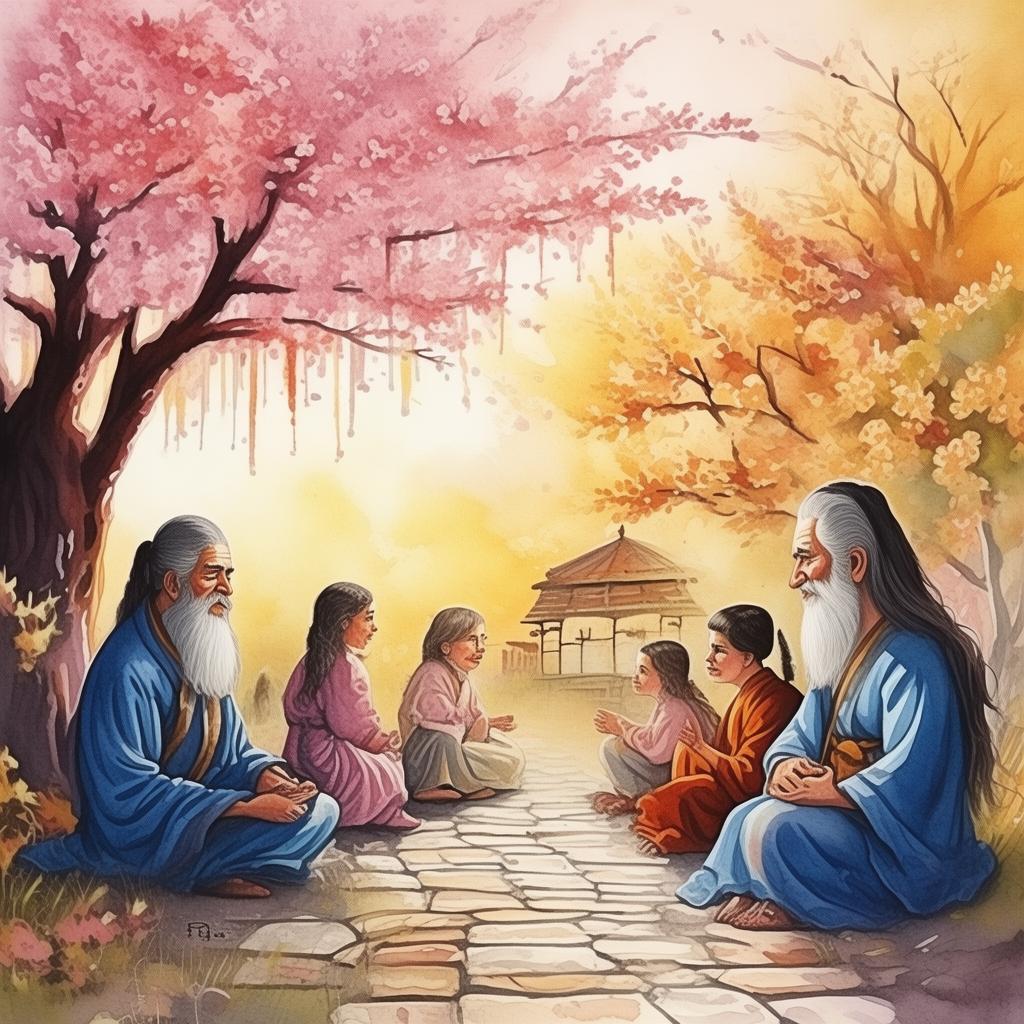
The emperor, upon learning of Zhang's actions, was both enraged and impressed. He realized that the empire was not as strong as he had believed, and that the true power lay in the unity of the kingdoms along the Silk Road.
And so, the story of Qin's Diplomatic Dilemma became a legend, a tale of courage and cunning, of a man who chose to stand against tyranny and protect the peace of the Silk Road. The emperor's hidden agenda was revealed, and the empire was never the same.
In the end, it was not the power of the sword that won the day, but the power of diplomacy, the power of understanding, and the power of unity. The Silk Road, once a path for trade, became a path for peace, a testament to the enduring strength of human ingenuity and the unyielding spirit of those who fight for what is right.
✨ Original Statement ✨
All articles published on this website (including but not limited to text, images, videos, and other content) are original or authorized for reposting and are protected by relevant laws. Without the explicit written permission of this website, no individual or organization may copy, modify, repost, or use the content for commercial purposes.
If you need to quote or cooperate, please contact this site for authorization. We reserve the right to pursue legal responsibility for any unauthorized use.
Hereby declared.
